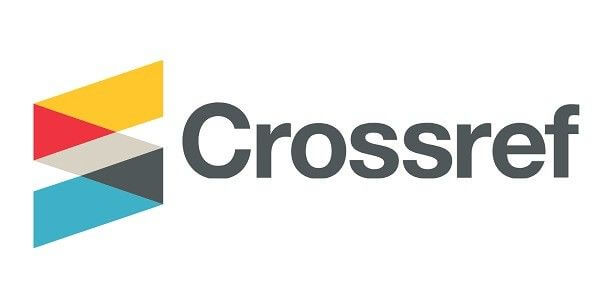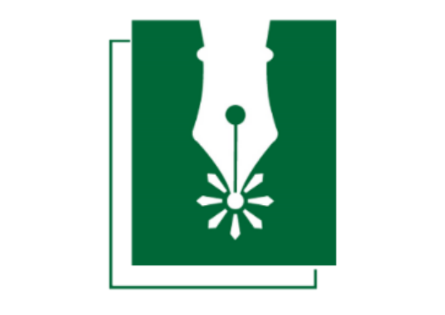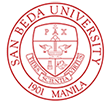Translation and Validation of the Filipino Sustainability Consciousness Questionnaire
Keywords:
sustainability consciousness, sustainable development, Filipino translation, validation, second-order factor analysisAbstract
Sustainable Development (SD) has undeniably become an important concept worldwide. But sustainability issues are viewed in different contexts and situations. It is believed that cultural context is an important factor that influences human behaviors and values related to society, the economy, and the environment. Language is an essential part of culture. Thus, measurement indicators that are culturally adapted are as important to visualize the efforts toward SD. The present study aims to create a Filipino version of the Sustainability Consciousness Questionnaire (SCQ) reflecting the three psychological constructs of knowingness, attitudes, and behavioral items which are related to SD dimensions of social, economic, and environmental. Also, validation of the Filipino SCQ (F-SCQ) by experts and pilot tests as to the conceptual level of the target users and construct validity were done. This study used a cross-sectional, explanatory nonexperimental design with participants composed of 678 male and female aged 18-19 years old. The translation processes go through preparation, translation proper (forward translation), and evaluation (i.e. back translation, bilingual technique, and pretest/cognitive debriefing with 10 target samples) to ensure that the translated instrument is both culturally acceptable and contextually scale relevant to target population. In terms of its factor structure, the results of the second-order factor analysis are as follows: for Sustainability Knowingness, all of the first-order factors (i.e., Environmental, Social, and Economic) were loaded onto a single second-order factor. For Sustainability Attitudes, only the Social and Economic factors were retained; while, for Sustainability Behaviour, only the Environmental and Economic factors were confirmed. Hence, this Filipino version of the SCQ is found to be psychometrically sound and suitable for Filipino adolescents in measuring their sustainability consciousness. Further evaluation is recommended in comparison to the original English SCQ, other age groups; and translation to other Philippine dialects may also be considered in future studies.
References
Almario, V.S., et al. (2003). Patnubay sa Pagsasalin (Pambansang Samahan para sa Kultura at mga Sining [National Commission for Culture and the Arts – NCCA]). Anvil Publishing, Inc.
Anderson, J. C., & Gerbing, D.W. (1988). Structural equation modeling in practice: A review and recommended two-step approach. Psychological Bulletin, 103(3), 411–423. https://doi.org/10.1037/0033-2909.103.3.411 DOI: https://doi.org/10.1037//0033-2909.103.3.411
Ariza, MR., Boeve-de Pauw, J., Olsson, D., Petegem, PV., Parra, G. & Gericke, N. (2021). Promoting environmental citizenship in education: The potential of the sustainability consciousness questionnaire to Measure Impact of Interventions. Sustainability 13, 11420. https://doi.org/10.3390/su132011420 DOI: https://doi.org/10.3390/su132011420
Awang, Z. (2015). SEM Made Simple: A Gentle Approach to Learning Structural Equation Modelling. MPWS Rich Resources.
Batnag, A. E., & Petras, J. D. (2009). Teksbuk sa pagsasalin. C & E Publishing, Inc.
Bernardo, AB., I. (2011). Lost in translation? Challenges in Using psychological tests in the Philippines, Silliman Journal, 52(1), 21-45.
Berglund, T., Gericke, N., Boeve-de Pauw, J., Olsson, D., & Chang, T. C. (2020). A cross-cultural comparative study of sustainability consciousness between students in Taiwan and Sweden. Environment, Development and Sustainability, 22, 6287-6313. https://doi.org/10.1007/s10668-019-00478-2 DOI: https://doi.org/10.1007/s10668-019-00478-2
Brown, T. A. (2015). Confirmatory factor analysis for applied research. Guilford publications.
Byrne, B. (1984). The general/academic self-concept nomological network : A review of construct validation research. Review of Educational Research, 54(3), 427–456. https://doi.org/10.3102/00346543054003427 DOI: https://doi.org/10.3102/00346543054003427
Byrne, B. M. (2005). Factor analytic models: Viewing the structure of an assessment instrument from three perspectives. Journal of personality assessment, 85(1), 17-32. https://www.doi.org/10.1207/s15327752 jpa8501_02 DOI: https://doi.org/10.1207/s15327752jpa8501_02
Bolanos-Medina, A., & Gonzalez-Ruiz, V. (2012). Deconstructing the translation of psychological tests, Meta 57(3), 715-739. https://www.doi.org/10.7202/1017088ar. DOI: https://doi.org/10.7202/1017088ar
Caisip, A. & Espinosa, KP. M. (2022). Filipino youth’s awareness of climate change impacts: Basis for program development in vulnerable urban communities. Psychology and Education 59(2), 382-395
Cagas, J. & Hassandra, M. (2014). The basic psychological needs in Physical Education Scale in Filipino: An exploratory factor analysis. Philippine Journal of Psychology, 47(1), 19-40.
Constantino, P. C., & Rada, E. T. (2013). Talas-Isip: Pagbasa at pagsulat tungo sa pananaliksik. Manila: Mindshapers, Co. Inc.
Cook T. D.; Campbell D. T. (1979). Quasi-experimentation. Houghton Mifflin.
Cronbach, L. J.; Meehl, P. E. (1955). Construct validity in psychological tests. Psychological Bulletin. 52 (4): 281–302. DOI: https://doi.org/10.1037/h0040957
https://www.doi.org/10.1037/h0040957
De Vijver, FV., & Tanzer, N. K. (2004). Bias and equivalence in cross-cultural assessment: An overview. (54) 19–135 DOI: https://doi.org/10.1016/j.erap.2003.12.004
www.elsevier.com/locate/
De Vijver, FV., & Hambleton, R. K. (June, 1996). Translating tests: Some practical guidelines. European Psychologist. https://www.doi.org/ 10.1027/1016-9040.1.2.89
Ganotice, F. A., & King, R. B. (2014). Blessed are those who wait: Validating the Filipino version of the Academic Delay of Gratification Scale (ADOGS). The Asia-Pacific Education Researcher, 23(1), 19-27. DOI: https://doi.org/10.1007/s40299-013-0081-1
Ganotice, F. A., Lising, R. L. S., Nieva, A. M., & Bernardo, A. B. I. (2016). Variations in Filipino college students’ achievement goals in different types of college subjects. Counseling, psychology, and education: A Festschrift in honor of Rose Marie Salazar-Clemena.
Gatignon, H. (2003). Statistical analysis of management data. Kluwer Academic Publishers. DOI: https://doi.org/10.1007/b101868
Gericke, N., Boeve‐de Pauw, J.,Berglund, T., & Olsson, D. (2019). The sustainability consciousness questionnaire: The theoretical development and empirical validation of an evaluation instrument for stakeholders working with sustainable development. Wiley: Sustainable Development. https:///www.doi.org/10.1002/sd.1859 DOI: https://doi.org/10.1002/sd.1859
Gunes G. & Bati, K. (2018). Development of a scale on scientific epistemological views and investigation of epistemological views of prospective teachers. International Journal of Research in Education and Science (IJRES), 4(2), 391-408. https://www.doi.org/ 10.21890/ijres.409299 DOI: https://doi.org/10.21890/ijres.409299
Hair, J. F., Black, W., Babin, B., & Anderson, R. (2013). Multivariate data analysis. Always learning: Pearson Education Limited.
House, J. (2016). Translation as communication across languages and cultures. Routledge. DOI: https://doi.org/10.4324/9781315668956
Hu, L. T., & Bentler, P. M. (1999). Cutoff criteria for fit indexes in covariance structure analysis: Conventional criteria versus new alternatives. Structural Equation Modeling, 6(1), 1–55. https://doi.org/10.1080/10705519909540118 DOI: https://doi.org/10.1080/10705519909540118
Johnson, B. (2001). Toward a New Classification of Nonexperimental Quantitative Research. Educational Researcher, 30(2), 3–13. https://doi.org/10.3102/0013189X030002003 DOI: https://doi.org/10.3102/0013189X030002003
Kline, R. B. (2015). Principles and practice of structural equation modeling. Guilford Publications.
Language Scientific (2018) http://www.languagescientific.com/what-is-linguistic-validation/
Matsunaga, M. (2010). How to Factor-Analyze Your Data Right: Do's, Don'ts, and How-To's. International journal of psychological research, 3(1), 97-110. https://doi.org/10.21500/20112084.854. DOI: https://doi.org/10.21500/20112084.854
Nicasio, M. S. (2012). Adopting a cultural lens in the understanding of Cognitive Behavior Therapy. Psychological Associations of the Philippines, 45(1).
Nieva, A. (2022). The Relationship between Career Interests and Academic Achievements in English, Mathematics, and Science of Grade 10 Students. International Journal of Arts, Sciences and Education, 3(2 June Issue). Retrieved from https://www.mail.ijase.org/index.php/ijase/article/view/122
Nieva, A. (2023). Construct validation of the teacher attitude to inclusion scale for Filipino pre-service teachers. Bedan Research Journal, 8(1), 305–329. https://doi.org/10.58870/berj.v8i1.56. DOI: https://doi.org/10.58870/berj.v8i1.56
Nieva, A., & Prudente, J. (2022). Online self-regulated learning, academic performance, and well-being of Senior High School Students in the NCR: A mediation analysis. Bedan Research Journal, 7(1), 48–62. https://doi.org/10.58870/berj.v7i1.32 DOI: https://doi.org/10.58870/berj.v7i1.32
Ogishima, H., Ito, A., Kajimura, S., & Himichi, T. (2023). Validity and reliability of the Japanese version of the sustainability consciousness questionnaire. Frontiers in Psychology, 14, 1130550. https://doi.org/10.3389/fpsyg.2023.1130550 DOI: https://doi.org/10.3389/fpsyg.2023.1130550
Owojecho, F. A. (2020). Implementation Challenges of National Language Policy in Nigeria: The Roles of the Indigenous Language. International Journal of Language and Literary Studies, 2 (1), 270-279 https://doi.org/10.36892/ijlls.v2i1.183 DOI: https://doi.org/10.36892/ijlls.v2i1.183
Punzalan, C.H. (2020). Evaluating the environmental awareness and practices of senior high school students: Basis for environmental education program. Aquademia, (4), 1 https://www.doi.org/10.29333/aquademia/8219 DOI: https://doi.org/10.29333/aquademia/8219
Rada, E. T. (2013). Estilo ng pagsasalin sa Wikang Filipino ng mga teksbuk sa Araling Makabayan. Scientia, 85-97.
Rada, E. T. (2022). Language-based approach in achieving Sustainable Development Goals: A qualitative meta-analysis. Bedan Research Journal, (7), 183-211 DOI: https://doi.org/10.58870/berj.v7i1.37
Quilon, A., & Kurniawan, Y. (2023). Online learning environment and mental health among university students. Bedan Research Journal, 8(1), 259–284. https://doi.org/10.58870/berj.v8i1.54 DOI: https://doi.org/10.58870/berj.v8i1.54
Rios, J., & Wells, C. (2014). Validity evidence based on internal structure. Psichothema, 26(1), 108–116. https://doi.org/10.7334/psicothema2013.260
Rogers, P. (2023, November 10). Best practices for your confirmatory factor analysis: A JASP and lavaan tutorial. https://doi.org/10.31219/osf.io/57efj. DOI: https://doi.org/10.31219/osf.io/57efj
Sjøberg, D. I. K.; Bergersen, G. R. (2022). Construct validity in software engineering. IEEE Transactions on Software Engineering. 49 (3): 1374–1396. https://www.doi.org/10.1109/TSE.2022.3176725 DOI: https://doi.org/10.1109/TSE.2022.3176725
Stevens, J. P. (2002). Applied multivariate statistics for the social sciences (4th ed.). Mahwah, NJ: Lawrence Erlbaum. Taber, K. S. (2018). The Use of Cronbach’s Alpha When Developing and Reporting Research Instruments in Science Education. Research in Science Education, 48(6), 1273–1296. https://www.doi.org/10.1007/s11165-016-9602-2 DOI: https://doi.org/10.1007/s11165-016-9602-2
Urdan, T. C. (2017). Statistics in plain English (4th ed.). Routledge Taylor & Francis Group.
West, S. G., Taylor, A. B., & Wu, W. (2012). Model fit and model selection in structural equation modeling. In R. H. Hoyle (Ed.), Handbook of structural equation modeling (pp. 209– 231). The Guilford Press.
Xia, X. (2016). Appraisal Theory in Functionalism and Translation Evaluation. Theory and Practice in Language Studies, 6(8), 1682-1686. DOI: https://doi.org/10.17507/tpls.0608.24
- PDF | 561
- Abstract Views | 891
Published
How to Cite
Issue
Section
Copyright (c) 2024 Ester Rada, Alvin Nieva

This work is licensed under a Creative Commons Attribution-NonCommercial-NoDerivatives 4.0 International License.











